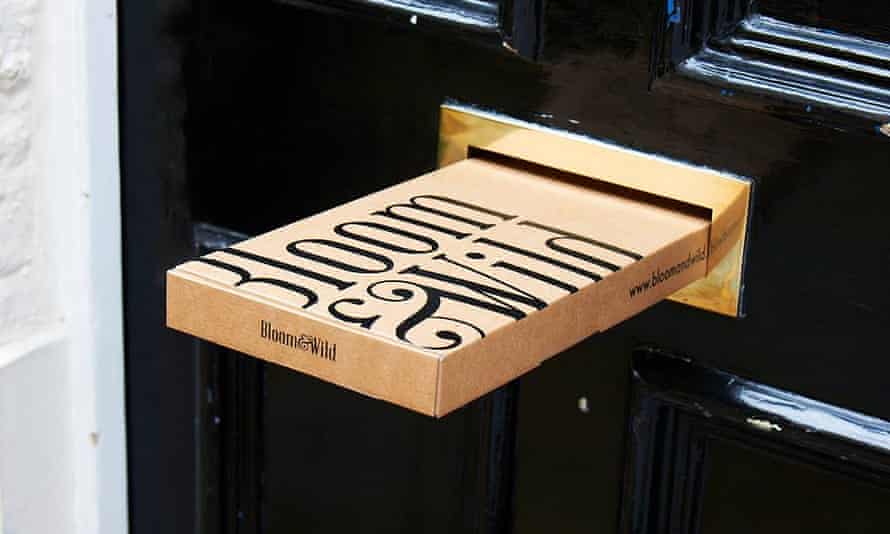Britons are sending bouquets of flowers as “substitute hugs” to friends and family during the pandemic, according to online florist Bloom & Wild.
The company, best known for its flatpack bouquets, which can fit through a letterbox, is challenging Interflora as the UK’s biggest florist after doubling its sales as Covid changed the way Britain bought flowers.

Demand for floral deliveries spiked in the first lockdown when high street stores closed but has continued at twice its previous level even in periods without restrictions, said Bloom & Wild’s co-founder Aron Gelbard.
This year Mother’s Day was a runaway success, with the company delivering more flowers in one week than it had in the first three years put together.
The UK flower market, usually worth between £2bn and £3bn a year, has been growing as, with people unable to visit each other, flowers have been “somewhat of a substitute for a hug”, said Gelbard.
The former management consultant believes his firm has created a new market with its letterbox flowers as customers, mainly women, send tokens to each other.
They are “less of a grand gesture”, Gelbard said of the packets, which start at £23 and are also carry plants such as orchids and succulents.
“As a result, we don’t just see orders for special occasions like Christmas, Valentine’s Day and Mother’s Day – the big traditional peaks in our industry. We see a lot of people sending flowers to say ‘thank you’ or ‘just because’.”
Bloom & Wild has logged 780,000 of these “just because” orders over the past year. It uses software to scan messages that accompany deliveries in an anonymised way and picked up the word “brighten” 162,000 times. There is also a big trend of people buying for themselves to cheer up their desk at home.
The online retailer said its sales will finish “substantially north” of £100m in the year to 31 March and forecast a “significant” profit for the period – a first for the eight-year-old business, which made a £2.2m loss in 2020.
The last set of accounts for Interflora show a turnover of £105m in 2019. “From what we know about the size of Interflora and how quickly it was growing, our indications are that we’ve now overtaken it as the market leader in the UK,” he said.
The growth of the London-based company has been rapid; two years ago sales were circa £30m. The pandemic has led to a surge in online shopping with investors keen to back businesses that could benefit from a long-term tilt to the web.
Bloom & Wild recently pulled in £75m from new investors in a fundraising that brings the total raised to almost £100m. The backers include General Catalyst – an early supporter of Airbnb – and Index Ventures, which has backed Facebook and Just Eat.
The cash is being used to fund further expansion in mainland Europe. Brexit has not caused any setbacks for the company which has a warehouse in Dortmund in Germany. It is already despatching orders there, as well as in France and Ireland.
This content first appear on the guardian

Muchas gracias. ?Como puedo iniciar sesion?